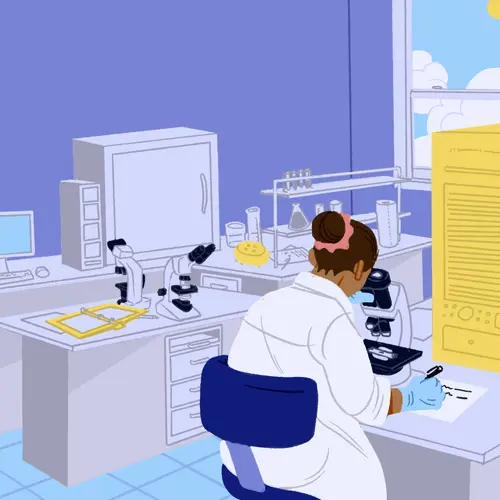Migraines and epilepsy often go hand in hand. If you have epilepsy, you’re more than twice as likely to get migraines as someone who doesn’t.
The reverse is true, too. People with migraines are more than twice as likely as others to have epilepsy. But few people who have migraines develop epilepsy without another risk factor, like a head injury or stroke.
What's the connection? Scientists aren't sure, though they have theories. They do know that migraines and epilepsy have some of the same symptoms and triggers.
How Are Migraines and Epilepsy Alike?
Both migraine headaches and epileptic seizures begin when your brain activity becomes overexcited. In both conditions, you have occasional periods of illness followed by recovery. Each may result from brain injury. And both migraines and epilepsy run in families.
The two conditions share some symptoms, like:
- Headache
- Nausea and stomach pain
- Numbness in the arms and face
And some of the same things can set off a migraine or an epileptic seizure, including:
- Stress
- Changes to sleep patterns
- Alcohol
- Not taking medication, or taking too much medication
But there are important differences between the two conditions, too:
- About 12% of people get migraines, but only 0.5% have epilepsy.
- Migraines are more common in women, but epilepsy affects men and women equally.
- Migraines may last for hours or days, while seizures usually last minutes.
- Epilepsy can sometimes be life-threatening.
Can Migraines Cause Epilepsy?
One theory is that migraines could cause damage to the brain, making it epileptic. But there's no evidence this is true.
Another possibility is that migraines trigger seizures, the main symptom of epilepsy. In 1960, this very rare condition was named "migralepsy." More recently, the International Headache Society added migralepsy to its headache classifications.
But some scientists think people can simply mistake seizure symptoms for a migraine "aura." If you have migraines with auras, you feel tingling and numbness, or see spots, sparks, or lines before you get a migraine. Some people also have auras before epileptic seizures.
Can Epilepsy Cause Migraines?
Epilepsy can lead to headaches. Before an epileptic seizure, you might get a headache that may be as painful as a migraine. These so-called pre-ictal headaches signal that a seizure is about to start.
More commonly, you can get a bad headache after you have a seizure. Almost half of all people with epilepsy may have "postictal" headaches or migraines. It usually happens after one of these types of seizures:
- Occipital seizures. These happen in just one part of your brain and may cause changes to your vision.
- Tonic-clonic seizures. These are what many people tend to think of as an epileptic seizure. You lose consciousness, and jerking motions affect your whole body.
- Temporal lobe seizures. These may cause feelings of anxiety, anger, or joy. They can affect your sight, hearing, or speech, or make you lose consciousness for a short time.
In these cases, treating the seizures will also treat the headaches.
Some medications can treat both migraines and epilepsy, such as:
- Gabapentin, an epilepsy medicine that sometimes works to prevent migraines
- Topiramate, another epilepsy drug that may be prescribed to prevent migraines
- Valproate, a drug used for epilepsy as well as migraine and bipolar disorder
Sometimes migraines get overlooked when you have epilepsy since epilepsy is less common and more serious. If you have epilepsy and get headaches or migraines, tell your doctor. They can help you figure out what's going on and get the right treatment.

